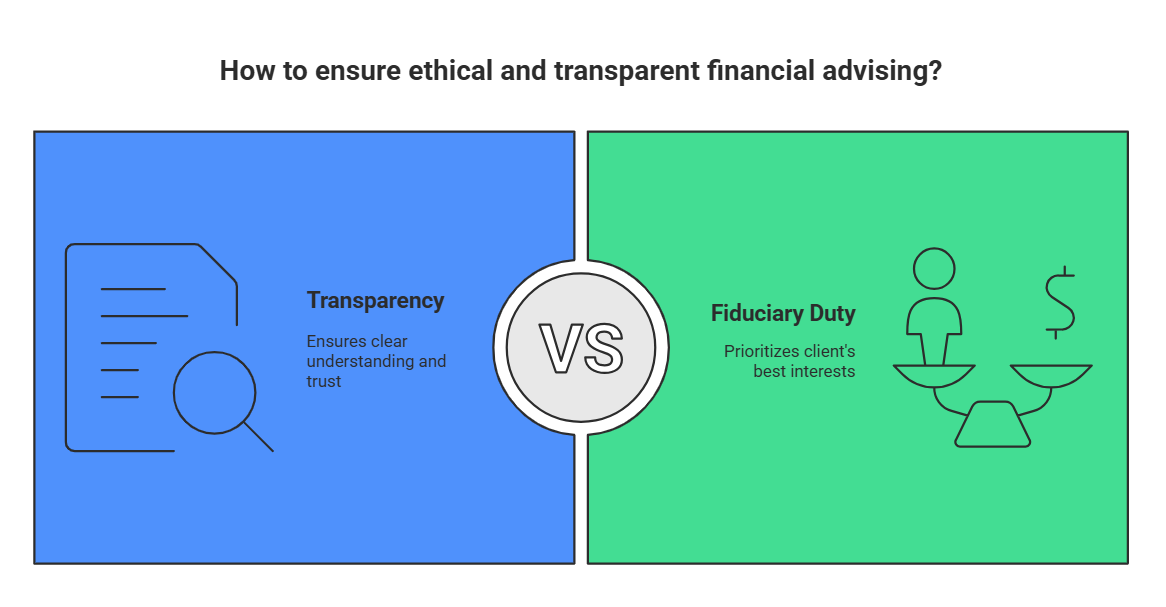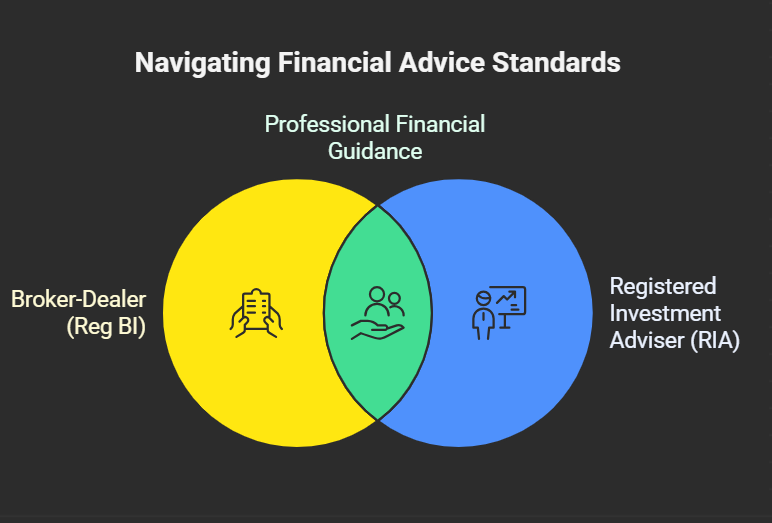
Uncovering the Facts: Is Ameriprise a Fiduciary Firm?
Many high-net-worth investors wonder, is Ameriprise a fiduciary, especially when seeking personalized guidance to protect and grow substantial assets. A fiduciary is legally bound to put clients’ interests first, but financial firms can follow different rules depending on their registration status. For those who prioritize a high standard of care, understanding Ameriprise’s approach becomes an important step in considering a wealth management relationship.
Understand The Fiduciary Standard

A fiduciary standard obligates financial advisors to act in clients’ best interests at all times. It involves a duty of loyalty and care that protects a client’s goals and holds the advisor accountable for any conflicts of interest. According to the Investment Advisers Act of 1940, Registered Investment Advisers (RIAs) must fulfill this standard by offering transparent disclosures, managing conflicts, and maintaining strict ethical practices.
Why This Standard Matters
High-net-worth individuals often have more complex financial needs, from estate planning to tax strategies. A fiduciary is expected to provide impartial recommendations that help preserve and grow that wealth. Because fiduciaries are required to disclose how they are compensated, investors can more easily identify any potential biases in product recommendations.
Examine Ameriprise’s Fiduciary Approach

Ameriprise Financial Services, LLC offers investment products that involve potential risk, including the loss of principal (Ameriprise Financial). The firm operates under a structure that includes brokerage and advisory services. This means Ameriprise must abide by Regulation Best Interest (Reg BI) for broker-dealer activities, while certain advisory services may be subject to the traditional fiduciary standards.
Many high-net-worth individuals may also review how Ameriprise addresses personalized advice. The company emphasizes tailored planning based on each client’s objectives, rather than a one-size-fits-all strategy. It discloses potential conflicts of interest in its Client Relationship Summary, enabling clients to scrutinize the level of fiduciary care they receive.
Note Key Regulations

Under Reg BI, broker-dealers are required to act in the client’s best interest when making recommendations. They must disclose conflicts of interest and exercise reasonable diligence, care, and skill. Meanwhile, Registered Investment Advisers must maintain a fiduciary obligation under the 1940 Act, placing clients’ objectives before their own. Ameriprise acknowledges and outlines these standards by providing a Regulation Best Interest disclosure (Ameriprise Financial – Client Relationship Summary).
By covering both brokerage and advisory channels, Ameriprise’s responsibilities can differ based on the service a client selects. Investors may compare this to purely advisory firms that hold themselves to a fiduciary standard in all client interactions. To explore another example, is Fidelity a fiduciary also provides insight into how major institutions handle fiduciary obligations.
Consider High-Net-Worth Needs

For wealthy individuals seeking an advisor, regulatory requirements are only one factor. Many also evaluate a firm’s expertise, service model, and professional track record. Ameriprise makes it relatively straightforward to find an advisor, offering over 10,000 professionals nationwide, with the option to check each advisor’s background on FINRA’s BrokerCheck.
It may help to compare various approaches when deciding on a wealth manager. Some may consult resources such as how to choose a wealth manager or even wonder is wealth management worth it. Overall, factors like fee structures, communication style, and performance history can guide a high-net-worth individual toward a firm that feels like the right fit.
Share Final Thoughts
Whether Ameriprise is a fiduciary depends on the specific service selected. The firm’s advisory arm must follow the fiduciary standard, while its broker-dealer arm must observe Reg BI guidelines, which still require serving clients’ best interests. High-net-worth individuals often rely on a firm’s transparency and track record to confirm commitment to client-focused care. Conducting thorough research and comparing multiple wealth management providers can help individuals find the right balance of service, cost, and fiduciary accountability.
Frequently Asked Questions
- Is Ameriprise purely a fiduciary in every service?
Ameriprise offers both advisory and brokerage services. The advisory side follows fiduciary rules, while the brokerage side abides by Reg BI guidelines. - How does Reg BI differ from a fiduciary standard?
Reg BI requires broker-dealers to act in the best interest of the investor at the time of recommendation, but a fiduciary standard imposes a continuous duty of loyalty and care. - Are Ameriprise advisors required to disclose conflicts of interest?
Yes. Ameriprise publishes material conflicts of interest in its Client Relationship Summary and Regulation Best Interest disclosure, ensuring investors can review important details. - Does Ameriprise cater to high-net-worth individuals specifically?
Ameriprise focuses on personalized advice for a range of clients, including high-net-worth investors who need specialized strategies for estate planning, tax considerations, and more. - How can someone verify an Ameriprise advisor’s credentials?
Individuals can check an advisor’s work history and qualifications through FINRA’s BrokerCheck website, as suggested by Ameriprise’s own disclosures.
Recent Posts
Wealth Management in Los Angeles to Consider
Finding the right wealth management firm can make a lasting...
Wealth Management in New York to Consider
New York City stands as a global financial hub, attracting...





